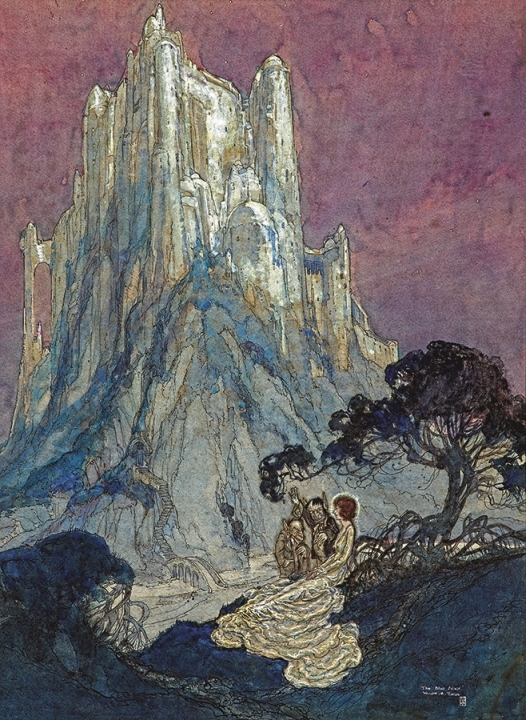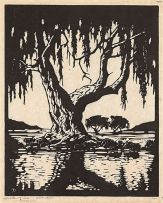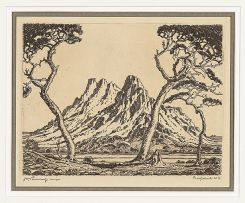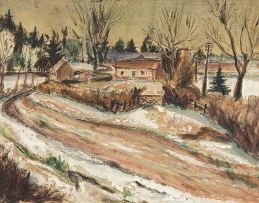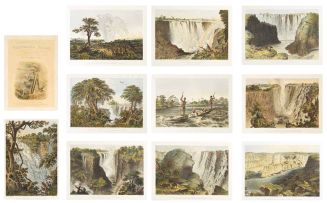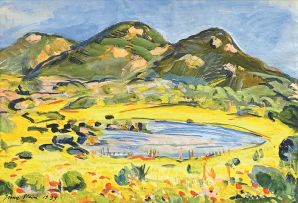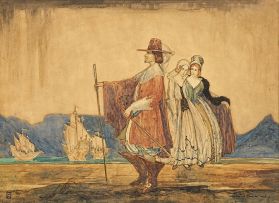Important South African and International Art
Live Auction, 10 November 2014
Evening Sale
Incl. Buyer's Premium & VAT
About this Item
signed, bears the artist's owl device mark and inscribed with the title
Notes
Born in Ashington, Northumberland, the son of a colliery foreman, William Timlin displayed great talent for drawing from a young age. While at Morpeth Grammar School he was awarded a scholarship to the Armstrong College of Art in Newcastle where he commenced training in architecture. In 1912 he left England to join his parents in Kimberley where he apprenticed to the architect, DW Greatbatch, and completed his art training, graduating with honours in the art examinations of the South Kensington Board of Education held in Kimberley.
Timlin devoted two years of production to The Ship that Sailed to Mars, a fantasy story book, commencing in 1921 initially as a diversion for his young son. In 1923 the publishers, George Harrap, were so delighted with the illustrations that they chose to print the book without typesetting. This book has since become a classic and is regarded by many as one of the earliest examples and ultimate harbinger of twentieth century fantasy and science fiction. The film rights were purchased in the USA, where Timlin enjoyed great popularity, but the film, to be entitled "Get Off the Earth", was never completed.
In 1927, the year in which Timlin published a series of pencil sketches entitled South Africa, he commenced work on a series of fantasy paintings for another book to be entitled The Building of a Fairy City. He also wrote the texts and designed the pages but the project was never finished. Numerous paintings of scenes for this book exist in collections both in South Africa and America.
According to Esmé Berman:
"Of all his fantasies, the ones which retain significance are found among the studies for The Building of a Fairy City. His other enchanted woods and elfin folk are charming in their genre - which is fairy tale; the pictures from The Ship that Sailed to Mars are talented illustrations, no more. The Fairy City is a subtly different thing: it is an escape along whimsical by-paths leading from his practical day-to-day profession [architecture]. There is some fine structural drawing in this series and some imaginative architectural day-dreaming. Two moods are established, the one relating to the projected book - quaint and witty; the other a more spontaneous, almost absent-minded, straying from the rigidity of routine design."1
The present lot was intended as the cover for the book The Building of a Fairy City, believed by many to be the seminal and superior work of fantasy by Timlin. Executed with great skill and attention to detail, The Blue Palace depicts a starry night with two fairies sitting beside a princess ensconced in a halo, gesturing to the lavish palace beyond. The care that was taken in finishing this painting is clear and its selection as the cover image conveys the artist's belief in the importance of the work.
Esmé Berman. (1983) Art & Artists of South Africa. Cape Town and Rotterdam: AA Balkema. Page 456.
